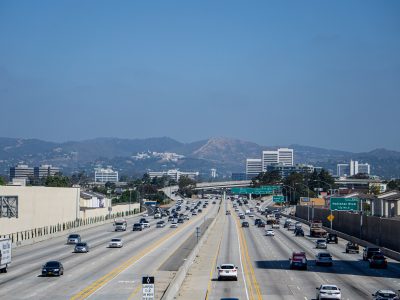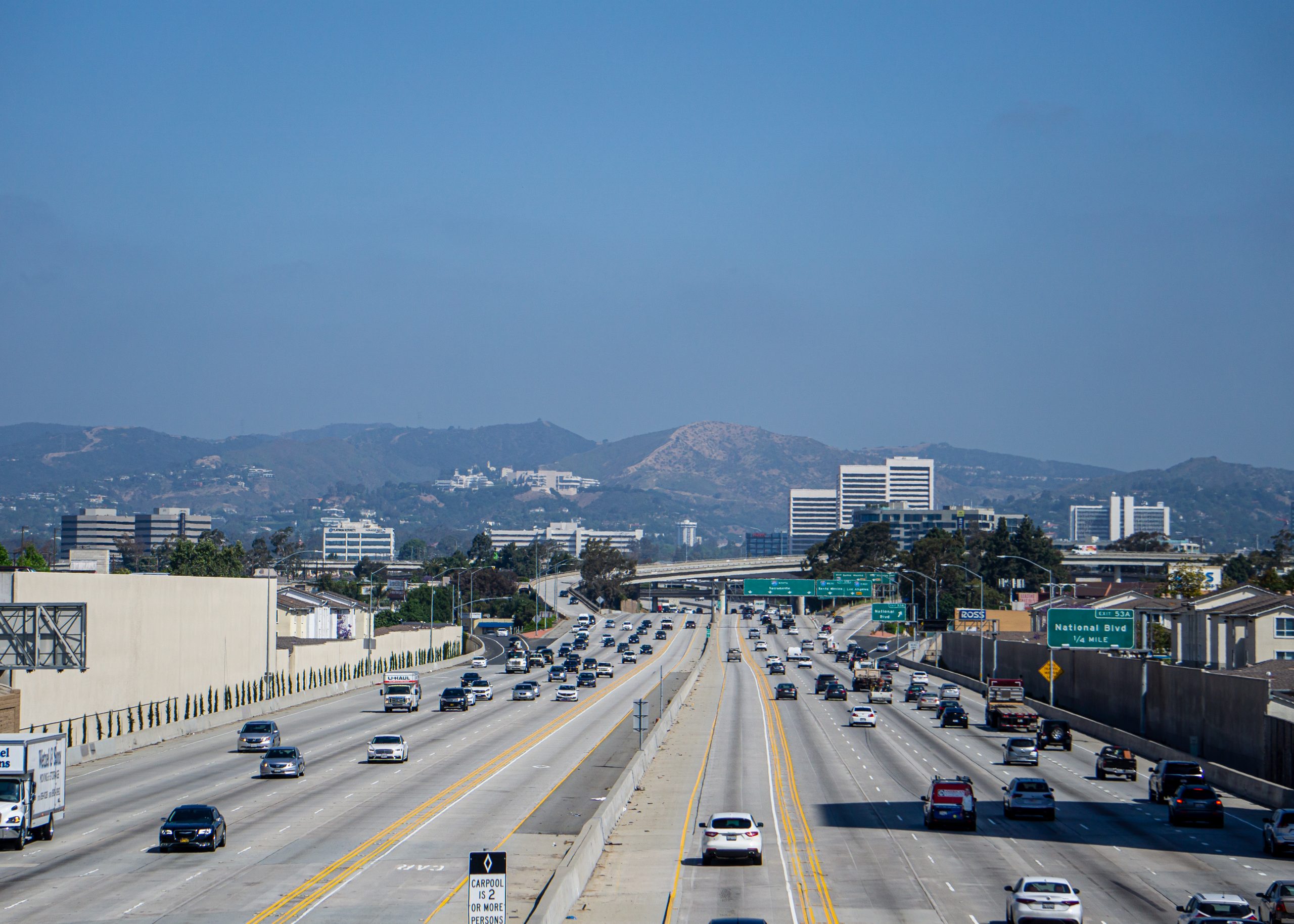 California has long led the fight against pollution from passenger vehicles, setting its first car emissions standards in 1966 before federal rules were established. After the Clean Air Act was passed in 1970, California retained authority to establish a series of more stringent vehicle emissions rules—with the most recent iteration of greenhouse gas emissions standards …
California has long led the fight against pollution from passenger vehicles, setting its first car emissions standards in 1966 before federal rules were established. After the Clean Air Act was passed in 1970, California retained authority to establish a series of more stringent vehicle emissions rules—with the most recent iteration of greenhouse gas emissions standards …
The post Members of Congress Oppose Trump Administration’s Attempt to Revoke California’s Clean Car Standards appeared first on Legal Planet.
#greenhousegas #legalplanet https://legal-planet.org/wp-content/uploads/2020/07/49923728853_dcc871d481_o-400x300.jpg https://legal-planet.org/2020/07/06/members-of-congress-oppose-trump-administrations-attempt-to-revoke-californias-clean-car-standards/
California has long led the fight against pollution from passenger vehicles, setting its first car emissions standards in 1966 before federal rules were established. After the Clean Air Act was passed in 1970, California retained authority to establish a series of more stringent vehicle emissions rules—with the most recent iteration of greenhouse gas emissions standards adopted by 13 other states. But after decades of cooperation with the federal government, California’s vehicle standards have come under attack from the Trump Administration.
In defense of California’s authority to set clean car standards, and on behalf of 29 Senators and 118 Representatives of the House, UCLA Law’s Frank G. Wells Environmental Law Clinic filed an amicus brief today in a D.C. Circuit case challenging a rule from the Trump Administration that seeks to invalidate California’s clean car standards. Clinic (and Emmett Institute) faculty Cara Horowitz, Julia Stein, and I were the brief’s authors, along with our colleague Ann Carlson. As members of Congress, amici offer a unique understanding of the statutory text and legislative history of the laws that the Trump Administration relies upon to support its flawed preemption determination. In fact, some of our clients helped develop and enact the very statutory language analyzed in the rule.
The brief opposes determinations made by the National Highway Traffic Safety Administration (or “NHTSA”) and the U.S. EPA in Part 1 of the “SAFE” rule, released in September 2019. In that rule, NHTSA concludes that the Energy Policy and Conservation Act of 1975 (or “EPCA”)—which first established the federal fuel economy program—preempts California from using its authority under the Clean Air Act to regulate greenhouse gas emissions from new motor vehicles or adopt zero-emission vehicle mandates. EPA relies on NHTSA’s conclusion to justify revoking California’s waiver for its clean car standards, which allowed California to enforce those standards against manufacturers selling vehicles within the state.
My colleagues have written before about Part 1 of the SAFE rule and ensuing litigation, including the division within the auto industry regarding the Trump Administration’s attack on California. (See posts from Ann Carlson, Julia Stein, Cara Horowitz, and Sean Hecht here.) Professor Greg Dotson of the University of Oregon School of Law has compiled a detailed accounting of the relevant legislative history of EPCA and other subsequent laws in a forthcoming article; we are grateful for his scholarship and contributions to today’s amicus brief effort.
Our amicus brief explains that NHTSA’s conclusion that California’s clean car standards are preempted by EPCA’s fuel economy standards is the opposite of what Congress intended from the start. As we state in the brief:
The agencies’ conclusions directly conflict with the letter of EPCA, Congress’s intent in enacting it, and more than forty years of implementation. As the Supreme Court acknowledged in Massachusetts v. EPA, 549 U.S. 497 (2007), EPCA’s fuel economy mandates and the [Clean Air Act]’s vehicle emissions requirements are independent statutory enactments that may be administered in tandem. Indeed, Congress established from the outset that fuel economy standards do not interfere with state or federal authority to set vehicle emissions standards under the [Clean Air Act], and that vehicle manufacturers must meet these obligations simultaneously. In cases where emissions standards may affect a vehicle’s fuel economy, fuel economy standards must yield, if necessary. Congress reiterated that intent 30 years later in the Energy Independence and Security Act of 2007 (“EISA”), a set of amendments to EPCA in part designed to preserve state authority to adopt emissions standards.
The amicus brief we filed supports the position taken by California and 22 other states, together with several local governments and a variety of environmental organizations, as well as some energy and transportation industry interests, to request that NHTSA’s and EPA’s joint rule be struck down as unlawful.
The federal agencies’ actions in Part 1 of the SAFE rule threaten to pose a significant setback to domestic efforts to fight climate change and to protect public health around the country. California’s latest set of emissions standards, called the Advanced Clean Cars Program, serve as a template for other states intending to reduce greenhouse gas emissions from vehicles, work to advance vehicle innovation, and are critical to nationwide efforts to protect communities from traditional air pollution.
We hope that the unified voice of 147 members of Congress will be helpful to the D.C. Circuit as it navigates the complex statutory landscape of federal fuel economy and air pollution regulation.
The post Members of Congress Oppose Trump Administration’s Attempt to Revoke California’s Clean Car Standards appeared first on Legal Planet.
By: Benjamin Harris
Title: Members of Congress Oppose Trump Administration’s Attempt to Revoke California’s Clean Car Standards
Sourced From: legal-planet.org/2020/07/06/members-of-congress-oppose-trump-administrations-attempt-to-revoke-californias-clean-car-standards/
Published Date: Tue, 07 Jul 2020 01:37:09 +0000
Vist Maida on Social Me
Website Links
Maida Law Firm - Auto Accident Attorneys of Houston, by fuseology

No comments:
Post a Comment